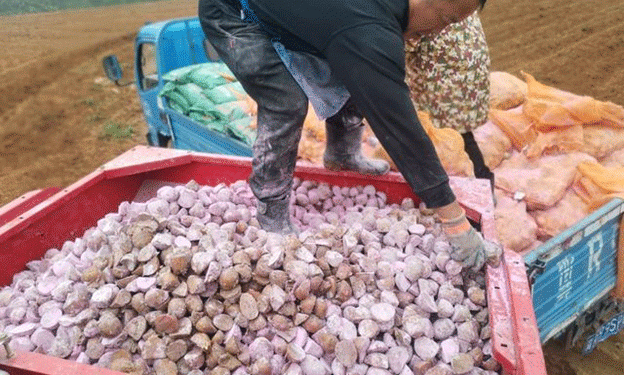In DuYun City’s Daping Village, large machines rumble across the fields, tilling, planting, and covering the soil with remarkable efficiency. On April 10, 2024, DuYun officially launched its first fully mechanized potato farming demonstration project, covering 800 acres. This move marks a major step forward for the region’s agriculture, which is set to benefit from lower operational costs, higher yields, and significant economic growth for local farmers.
The Role of Mechanization in Potato Farming
Mechanization in agriculture has become essential in achieving higher efficiency and productivity, especially for labor-intensive crops like potatoes. The DuYun project employs full mechanization from tilling the soil, planting the seeds, to harvesting the crop. This method drastically reduces the need for manual labor, accelerates the farming process, and ensures a more consistent quality of the crop.
Studies show that mechanized planting can reduce the total planting time by up to 70% while increasing productivity per unit area. By adopting mechanized processes, potato yields in similar regions have increased by 20-30% due to improved planting density and better soil management practices.
Key Factors for Success
According to technical staff from DuYun’s Agricultural Bureau, achieving optimal planting density is crucial to maximizing yield per hectare. Potatoes are nutrient-demanding crops, requiring careful fertilizer management. Regular and timely fertilizer application is another factor the mechanized process facilitates, as machines can deliver precise amounts of fertilizer directly where needed, optimizing nutrient uptake by the plants.
In addition, soil preparation plays a pivotal role in yield. Mechanized tilling allows for deeper and more even soil cultivation, which promotes better root development. Rich soil aeration also improves water retention, vital for potato crops in areas with fluctuating rainfall.
Economic Benefits and Scaling the Project
The demonstration base in DuYun represents a forward-thinking approach to rural development. The base, led by project manager Wu Yi, is integrated into an existing supply and sales network. With an investment of over 1 million yuan for initial testing, the company aims to expand potato farming across 10,000 acres during the winter season. The estimated cost per acre is around 2,000 yuan, but full mechanization and scaled operations are expected to cut costs significantly.
The “Company + Cooperative + Order” model being implemented will link over 10 agricultural machinery cooperatives, promoting local employment and generating over 500,000 yuan in additional revenue for these cooperatives. This model not only optimizes production but also provides guaranteed income streams for farmers and machinery operators, a win-win for all involved.
Ensuring a Successful Transition to Mechanization
To ensure smooth project implementation, DuYun’s Agricultural Bureau has designated a dedicated team to provide continuous support. This includes offering technical guidance, troubleshooting mechanical issues, and monitoring crop performance throughout the season. DuYun’s government has also worked closely with private companies to lease idle lands, further expanding the farming capacity and strengthening the local economy.
The use of mechanization in agriculture has been a global trend, with countries reporting significant improvements in crop yield and farm profitability. According to a 2023 report by the Food and Agriculture Organization (FAO), countries that have adopted full mechanization have experienced up to 40% higher agricultural output. DuYun’s initiative could become a model for similar agricultural regions in China, demonstrating how mechanization can be used to alleviate labor shortages, increase food security, and enhance rural incomes.
The introduction of full mechanization into DuYun’s potato farming sector marks a transformative moment for local agriculture. By reducing labor costs, improving yields, and providing steady income opportunities, this project stands to drive significant economic growth while enhancing rural prosperity. As the project expands to cover more land, DuYun is on the path to becoming a model for mechanized agriculture in the region, leading to greater food production and stronger local economies.







